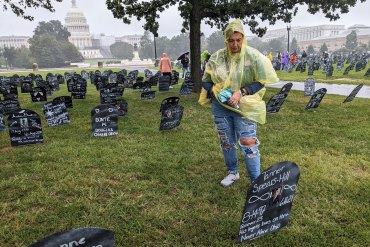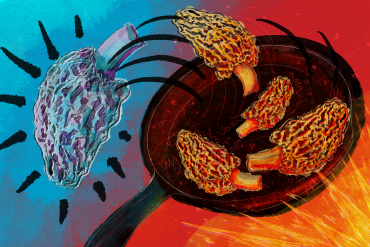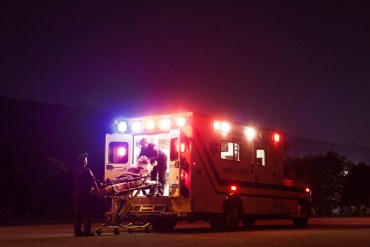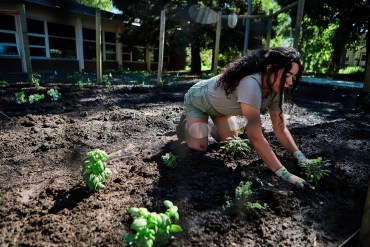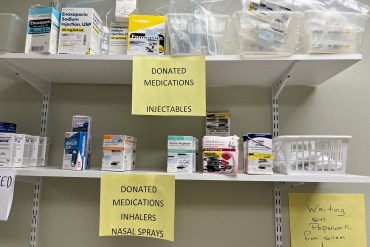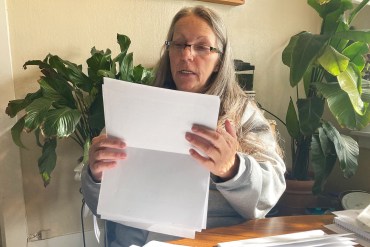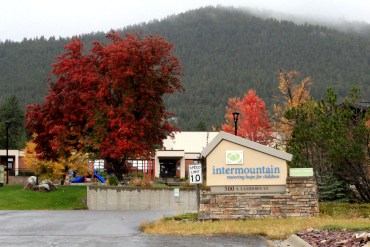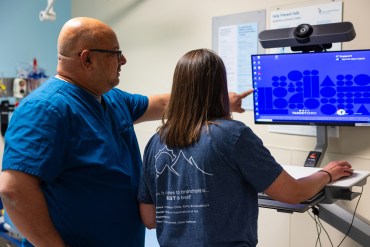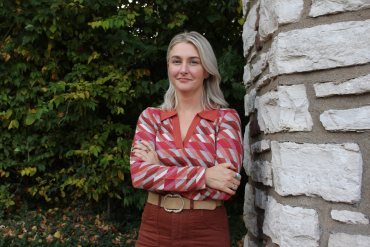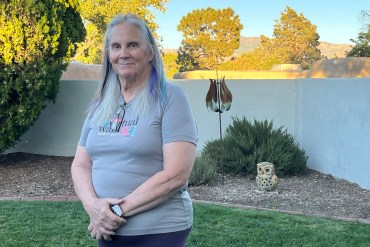The Year in Opioid Settlements: 5 Things You Need to Know
In the past year, opioid settlement money has gone from an emerging funding stream for which people had lofty but uncertain aspirations to a coveted pot of billions being invested in remediation efforts. Here are some important and evolving factors to watch going forward.
Deep Flaws in FDA Oversight of Medical Devices, and Patient Harm, Exposed in Lawsuits and Records
Thousands of medical devices are sold, and even implanted, with no safety tests.
Mysterious Morel Mushrooms at Center of Food Poisoning Outbreak
Federal officials issued their first guidelines on preparing morel mushrooms after a deadly food poisoning outbreak in Montana, noting the toxins in the delicacy aren’t fully understood.
‘They See a Cash Cow’: Corporations Could Consume $50 Billion of Opioid Settlements
As opioid settlement dollars land in government coffers, a swarm of businesses are positioning themselves to profit from the windfall. But will their potential gains come at the expense of the settlements’ intended purpose — to remediate the effects of the opioid epidemic?
‘Financial Ruin Is Baked Into the System’: Readers on the Costs of Long-Term Care
Thousands of people shared their experiences and related to the financial drain on families portrayed in the “Dying Broke” series, a joint project by KFF Health News and The New York Times that examined the costs of long-term care.
Millions in Opioid Settlement Funds Sit Untouched as Overdose Deaths Rise
Some states haven’t begun using opioid settlement funds intended to help curb the opioid epidemic. Meanwhile, more than 100,000 Americans died of an overdose last year.
As Foundation for ‘Excited Delirium’ Diagnosis Cracks, Fallout Spreads
Major policy changes and disavowals have made this a watershed year for curbing the use of the discredited “excited delirium” diagnosis to explain deaths in police custody. Now the ripple effects are spreading across the country into court cases, state legislation, and police training classes.
Food Sovereignty Movement Sprouts as Bison Return to Indigenous Communities
Native American leaders see bison herds and ancestral gardens as ways to bring healthy eating to their people.
Colorado Blames Biden Team and Drugmakers for Delaying Canadian Imports
Colorado officials say they haven’t been able to stand up a program to import drugs from Canada because of drugmaker opposition — and the Biden administration’s inaction.
These Programs Put Unused Prescription Drugs in the Hands of Patients in Need
States and counties look to expand programs that accept donations of unused surplus drugs from places like nursing homes and hospitals and redistribute them to low-income and uninsured residents.
Patients Expected Profemur Artificial Hips to Last. Then They Snapped in Half.
The FDA and the manufacturer were alerted to Profemur titanium hips breaking inside U.S. patients as of 2005. It took 15 years to recall the devices. Many fractures could have been avoided.
Medicaid ‘Unwinding’ Makes Other Public Assistance Harder to Get
The bottleneck caused by states’ reevaluation of Medicaid enrollees has swept up low-income families that rely on other safety-net services.
‘Forever Chemicals’ in Thousands of Private Wells Near Military Sites, Study Finds
New research finds that private wells near more than 82% of select military sites were contaminated with PFAS chemicals.
1 in 3 People Dropped by Utah Medicaid Left Uninsured, a ‘Concerning’ Sign for Nation
About a third of the 130,000 people Utah has dropped from Medicaid this year say they now lack health insurance. It’s a glimpse into the fate of people caught up in Medicaid’s “unwinding.”
Why Long-Term Care Insurance Falls Short for So Many
The private insurance market has proved wildly inadequate in providing financial security for millions of older Americans, in part by underestimating how many policyholders would use their coverage.
US Military Says National Security Depends on ‘Forever Chemicals’
PFAS chemicals are found in hundreds of products and weapons used by the U.S. military. Defense Department officials say a blanket ban on these man-made substances would threaten military readiness.
It’s Getting Harder to Find Long-Term Residential Behavioral Health Treatment for Kids
Intermountain Residential in Montana is one of the only facilities in the United States that offer long-term residential behavioral treatment for kids as young as four. Now, administrators say they’re not sure how long it can keep its doors open.
Why It’s So Tough to Reduce Unnecessary Medical Care
Treatments that don’t help patients, and may even harm them, are difficult to eliminate because they can be big sources of revenue.
Ohio Voted on Abortion. Next Year, 11 More States Might, Too.
Ohio is the latest state where voters have directly weighed in on abortion, and the next wave of such ballot measures is in the works in at least 11 other states, including Missouri.
As Transgender ‘Refugees’ Flock to New Mexico, Waitlists Grow
As many states have moved to restrict or ban gender-affirming care for trans people, a few states, including New Mexico, have codified protections. But those laws don’t always mean accessing care is simple or quick, as a surge in new patients in the state collides with limited doctors and clinics.




